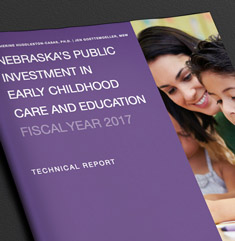
Buffet Early Childhood Institute Reports and Publications
Date of this Version
2020
Document Type
Article
Citation
Published in Early Education and Development 31:1 (2020), pp. 100–112.
doi:10.1080/10409289.2019.1621584
Abstract
Early childhood settings have the potential to support learners with diverse learning needs, including children with disabilities. However, if educators do not feel prepared to teach children with disabilities, this potential may not be fully realized. The current study examined early childhood educators’ (n = 1,296) feelings of preparedness for working with children with disabilities, including predictors of preparedness, and associations with assessment practices. Research Findings: Nearly 70% of educators felt well prepared to teach typically developing children whereas only 20% felt well prepared to teach children with disabilities. Educational attainment and education-related major predicted feelings of preparedness. Furthermore, feelings of preparedness related to perceived importance of assessment and self-rating of assessment. Feelings of preparedness for working with children with disabilities mediated nearly all of the associations between educational experiences and assessment practices. Practice or Policy: Findings support the need for educator preparation programs to include course content related to working with children with disabilities and assessment practices. Implications for practice and educational requirements for early childhood educators are discussed.
Included in
Child Psychology Commons, Developmental Psychology Commons, Early Childhood Education Commons, Educational Psychology Commons, Educational Sociology Commons, Education Economics Commons, Education Policy Commons, Policy History, Theory, and Methods Commons, Pre-Elementary, Early Childhood, Kindergarten Teacher Education Commons, School Psychology Commons


Comments
Copyright © 2019 Taylor & Francis Group, LLC. Used by permission.